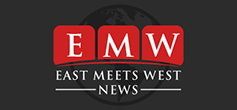Evgeny Renge: Strategic Choices for Business Leaders in Times of Uncertainty

Moscow – Opora Russia and Promsvyazbank report that in June, the business activity index for small and medium-sized businesses in Russia (RSBI) reached a historic high of 55.3 points. Key determinants include access to financing, investments, personnel, and sales volume.
Experts suggest that such a dramatic increase in entrepreneurial efficiency amidst market fluctuations signifies the effectiveness of crisis management measures implemented by companies of all sizes and the government. “Businesses are currently looking towards the future with optimism,” comments Aleksandr Khaikinson, director of the SME department at PSB’s St. Petersburg branch.
However, for budding entrepreneurs, the current situation could either serve as a powerful launchpad or the end of a barely started entrepreneurial journey. And much will hinge on the chosen strategy.
Hunkering down
Unlike economic crises over the past two decades, today’s market conditions present challenges that companies have never encountered before, in terms of the scale of market changes and response time. The past three years have seen a mix of a pandemic, geopolitical crisis, and massive technological shifts across all sectors.
Therefore, many large companies with a sufficient safety margin opt for a defensive strategy: to sit tight and weather the storm. Two factors that cannot be overlooked if your company has decided to “dig in”:
1. The team. The situation will change. Market volatility will return, possibly even increase, after the crisis peak. But valuable staff lost in the pursuit of profit will not come back. And you might easily miss opportunities that appear in the clearing clouds.
2. Expenses. Increasing profits in a difficult situation can be challenging or even impossible. However, you can cut costs and identify and plug any leaks in the company’s hold.
I have had a case where circumstances necessitated a “defensive” approach. With lockdowns being implemented worldwide, our industry was hit hard. At one point, the coal business almost came to a standstill: sales dropped sharply as global consumption decreased. We were unable to influence the circumstances.
So we chose the path of least resistance. We optimized operational expenses and implemented a series of standard measures for accounting and reducing losses. And we laid low, waiting out the worst of the downturn while preserving the core team, which, once the situation normalized, returned the business to profitability.
Transformation
By transformation, I mean restructuring the business to adapt to the new market reality in any way possible. For instance, if there is a decline in demand for your product, you should broaden your production capabilities and venture into something related.
The issue is that the business might lack the necessary competencies for a swift overhaul of its processes. Therefore, before attempting to enter a new market, the primary task is to assemble a team.
I’ll proceed with a personal example. My expertise was grounded in the global coal market in all its aspects. When we minimized losses and found ways to retain the team during the crisis peak, it was essential to progress further. I opted for mining engineering as a logical progression. The first step I took was to thoroughly examine potential partners.
For instance, some had business challenges that I could address with my expertise. Others had potential for growth but were lacking in capital. At the same time, I understood that their competencies could enhance my business. And so, we entered into negotiations.
In time, we found transparent partners with solid backgrounds and a team with whom we easily established relationships. This synergy resulted in a cumulative benefit for everyone involved. This probably wouldn’t have happened if everyone had embarked on their own transformation from the ground up.
Another hurdle in successful transformation is technology. For instance, the pandemic-induced quarantine abruptly halted nearly all deliveries of critically important raw materials and components, prompting some companies to adopt modern technologies like 3D printing for spare parts production. Without a doubt, this technology represents the future of manufacturing, as it significantly reduces the stages required to create complex metal forms and lessens reliance on distant suppliers.
However, transitioning to a new technology is a decision that every company would have avoided if not for the crisis. Growing a company today almost always involves the implementation of new IT solutions. These, in turn, are high-budget and require significant resources and time. Starting on this path is easy, but completing it isn’t always so. This is particularly true if you lack the necessary funds for investment support in this area.
Don’t choose a strategy — respond to the situation
As evident from the brief overview above, the optimal solution isn’t to choose between a staunch defense and aggressively attacking new markets, but to flexibly combine strategies. At the height of the crisis, we rallied and preserved our most valuable asset — our personnel. After the intense phase, we identified ways for rapid transformation and ventured into a new market with a fully equipped team.
There are always opportunities for launching a new business. It doesn’t really matter whether you’re starting from scratch or restructuring an existing organization. The initial three steps are crucial:
1. Form a core team.
2. Analyze the market and target audience.
3. Identify a source of investment.
The departure of foreign companies from Russia currently presents additional opportunities for Russian entrepreneurs. Vacant niches, workforce, and resources are becoming available. Enter, establish yourself, and reach break-even point relatively quickly.
Looking at world history, it is clear that market giants are companies that have survived the most challenging trials from the outset. A crisis is not inherently a time of opportunities or extra hurdles. It is simply a combination of circumstances that you can navigate, utilize, or disregard. The act of starting a new business is a crisis in itself. If you can’t emerge from it with a positive result, the market situation becomes irrelevant.
Media Contact
Company Name: Renge.pro
Contact Person: Evgeniy Renge
Email: Send Email
Country: Russian Federation
FREE Money In 2023 The Average Family Will Receive $22,967 On Gov’t Grants If They Apply.
There’s nothing complicated about it, Get Your FREE Money!
NO CREDIT Check – Bankruptcy OK – Apply Online






